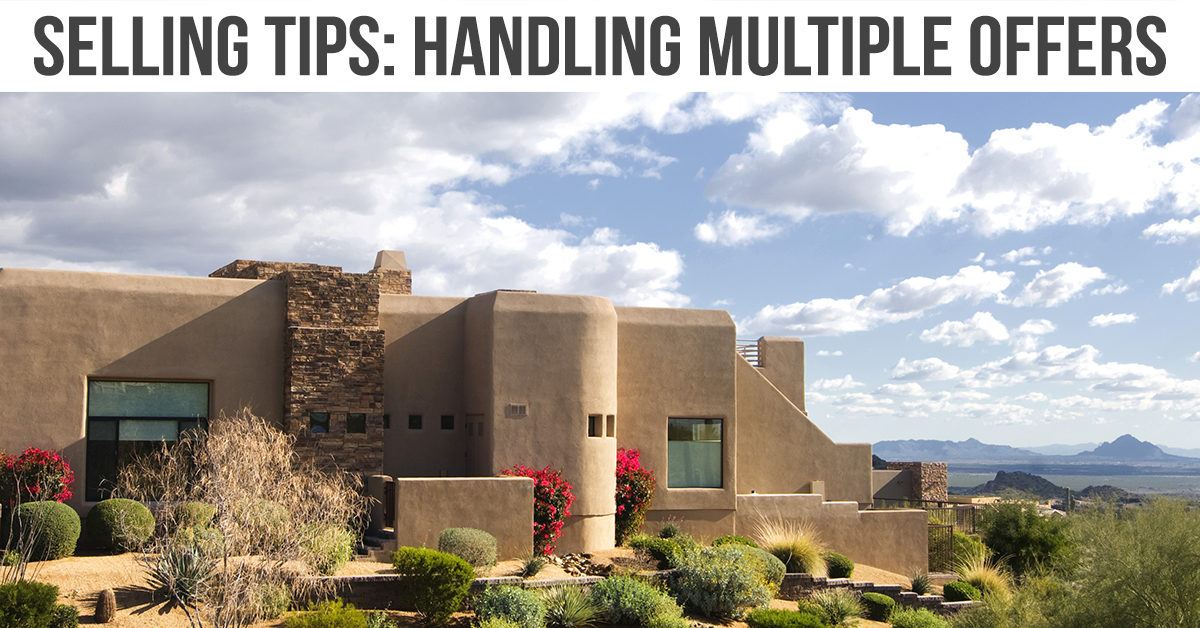Price Isn’t Everything: How to Handle Multiple Offers When Selling a House
Live in a hot real estate market? If you’re selling your house, you might be lucky enough to receive more than one offer. If so, it’s a good idea to let potential buyers know. That way, they can tailor their offer with the competition in mind.
You’ll then need to evaluate each offer fairly and consider advice from your real estate agent to choose the best one. Here are strategies to reach a decision:
Start with price but don’t end there
The offer with the highest price is going to get your attention, especially if it’s close to or above your asking price. But that doesn’t mean you should automatically hand over the keys to the highest bidder. Those offering the most money might be stretching their finances and run into trouble at the closing table. For example, they may not get approved for a big enough mortgage to buy the house at the agreed price.
So in addition to considering the dollar amount, you should review the terms of the entire contract with your real estate agent. For instance, consider how much cash the buyer is planning to include in the offer. More cash — and a correspondingly lower home loan — can ease a closing.
Compare contingencies
When buyers make an offer, they’ll often include a few conditions that, if not met, allow them to cancel the deal. These contingencies may include getting approved for a mortgage, having the home pass an inspection, and making sure the home appraises for a certain amount.
When you’re selling your home, contracts with fewer contingencies are better, because there will be fewer chances for the buyer to back out of the contract.
Consider buyer funding
If the buyer plans to pay in cash, you won’t have to wait for a lender to approve the home loan.
But most of the time, a buyer will need a mortgage, and if that’s the case, consider whether the buyer is preapproved for the home loan. An offer from a preapproved buyer usually is stronger than an offer from a buyer who hasn’t made any financing arrangements.
Consider your home’s value
Say you accept an offer from a buyer who then orders an appraisal of the property. If the appraised market value is less than the offer price, the mortgage company may lower the amount it’s willing to lend the buyer.
But if an offer indicates the buyer is willing to spend his own money to honor the original purchase price, even if the appraisal is unexpectedly low, that offer may be more attractive than one from a buyer who’s more dependent on a loan.
You and your agent should also consider the mortgage company a buyer plans to use. If the lender is well-known in your area and has a reputation of being able to close deals quickly, it’s more promising than if the buyer chooses a lender you’ve never heard of. If you’re worried about the lender, do some research or ask the buyer for more information.
Review closing periods
A buyer who’s willing to close within weeks is more attractive than one who needs or wants months to do the deal. If you’re reviewing similar offers and want to move soon, a quicker close can be a deciding factor.
But if you’re not ready to move, you may be better off with a buyer who’s willing to wait for you to find another home.
Review buyer ‘extras’
Some buyers may offer to pay some of your closing costs as a way to stand out against other offers. Another may make an offer with an escalation clause, offering to outbid another bidder by a certain amount. If you’re considering several offers that have similar price and contingency terms, these kinds of sweeteners can tip the balance.
Getting multiple offers when you sell your home can be exciting. But by considering all parts of the offers, including price, contingencies and ability to close, you can successfully handle multiple offers on your house and sign the best contract.
This article originally appeared on NerdWallet.


